Woman Stands Firm On Vacation Menu Despite Friend's Child's Food Allergies
Planning a holiday with friends and family can be an exciting but challenging task, especially when catering to various needs and preferences. OP, a 31-year-old woman faces a dilemma that is increasingly common in group settings: balancing the dietary restrictions of a child with food allergies against the preferences and budgets of the entire group.
The excitement of organizing a holiday trip with friends and family took a complex turn for OP. Her son, Alex, and her friend Emily's daughter, Ava, both aged five, are good friends.
The trip was meant to be a fun family getaway with several friends bringing their children. To manage expenses, the group decided to cook most meals in their apartment. OP took on the responsibility of shopping for food staples and creating a list that everyone could add to.
However, Emily pointed out that Ava, who has multiple food allergies, couldn't eat most of the items on the list. She proposed an alternative list with allergy-friendly ingredients, but this significantly increased the overall cost.
When other parents expressed concerns that their children wouldn't eat the alternative foods, OP faced a tough decision. She suggested Emily should buy separate food for Ava and adjust the food bill to exclude them, considering the budget constraints.
Emily, however, was worried about Ava feeling isolated, especially seeing her friend Alex eat different food. This concern highlighted a key issue: while accommodating Ava's allergies was manageable for occasional meals, it became more challenging over a ten-day holiday.
OP is going on a family trip with her husband, friends, and their kids.

To save money on their trip, they will cook and OP made a food list, but one of her friends sent her an edited version for her daughter, who has dietary restrictions.

Swaps increased shopping costs, some wanted the original list, so OP suggested getting food separately for Ava and adjusting the bill for Emily and her husband.

OP's friend is concerned that her daughter will feel excluded during a 10-day trip because she has to eat different food, but the OP doesn't want to eat that food for 10 days.

OP's friend should consider meal prepping instead.
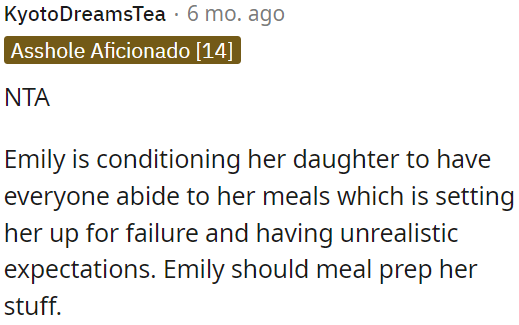
She should take responsibility for accommodating her child's special requirements, and it's not fair to expect others to foot the bill for it.
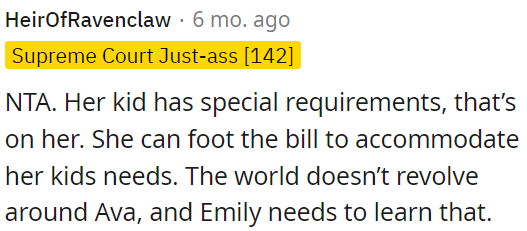
OP's friend is being unreasonable by expecting everyone to follow her child's diet.

They have to cover the costs of accommodating her needs.

When organizing a group trip and a child has allergies, it is reasonable for a parent to prepare food for their child separately.
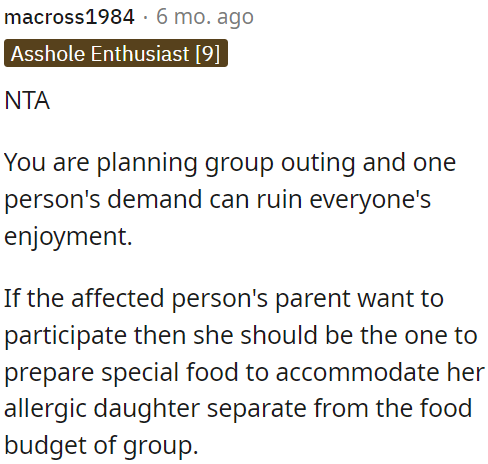
It's not necessary to change the menu for everyone.
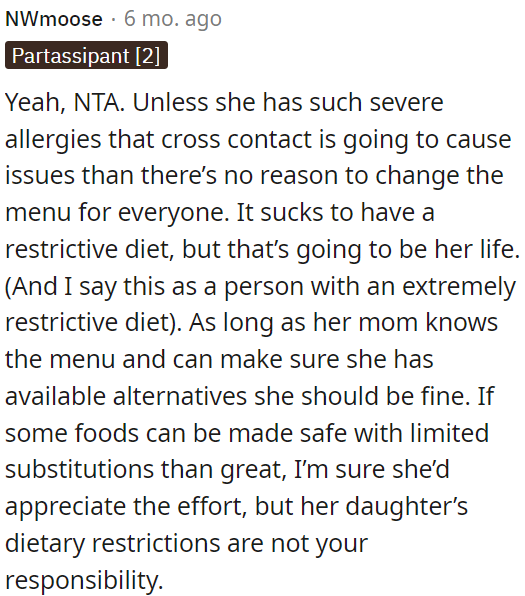
It's not fair to impose it on the whole group, and as the child grows up, they'll learn the world doesn't revolve around their allergies.
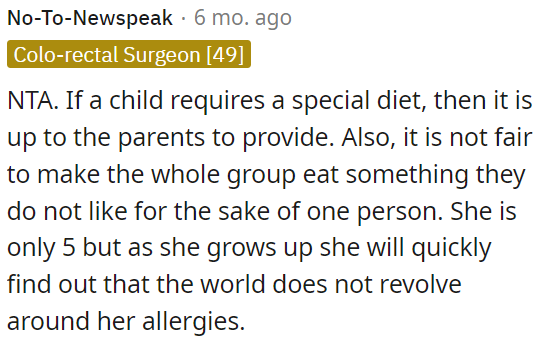
It's not fair for her parents to impose their child's food restrictions on everyone else.
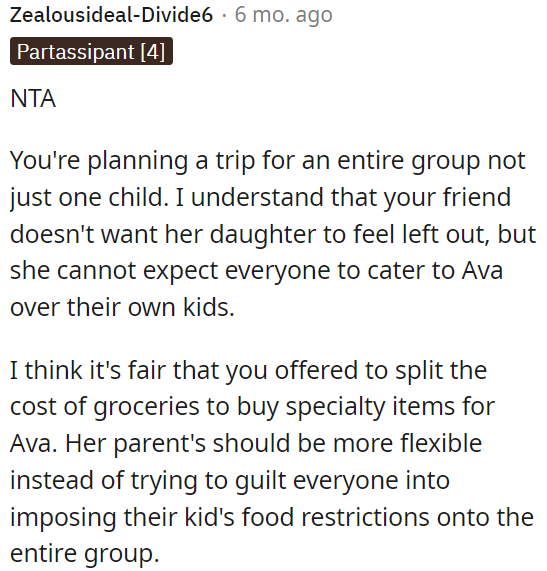
There could be a compromise: provide for her needs during one meal (lunch) while her parents handle the other two.
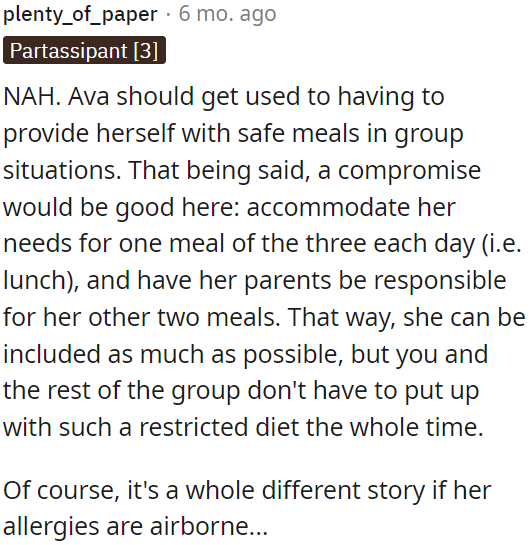
OP's friend should take care of making special food for her child, Ava, who has allergies. It's not fair to ask everyone else to change what they eat and pay more money just for Ava's food.
When a group goes on a trip and one child has allergies, that child's parents should make their food separately instead of making everyone else change their meals. This way, everyone is treated fairly, and kids learn that the world doesn't always cater to their specific needs.
A possible solution could be that they make special food for Ava during one meal, like lunch, while her parents handle the other meals. This way, they find a balance that works for everyone.
Talking and understanding each other's needs is essential to solve this issue.




